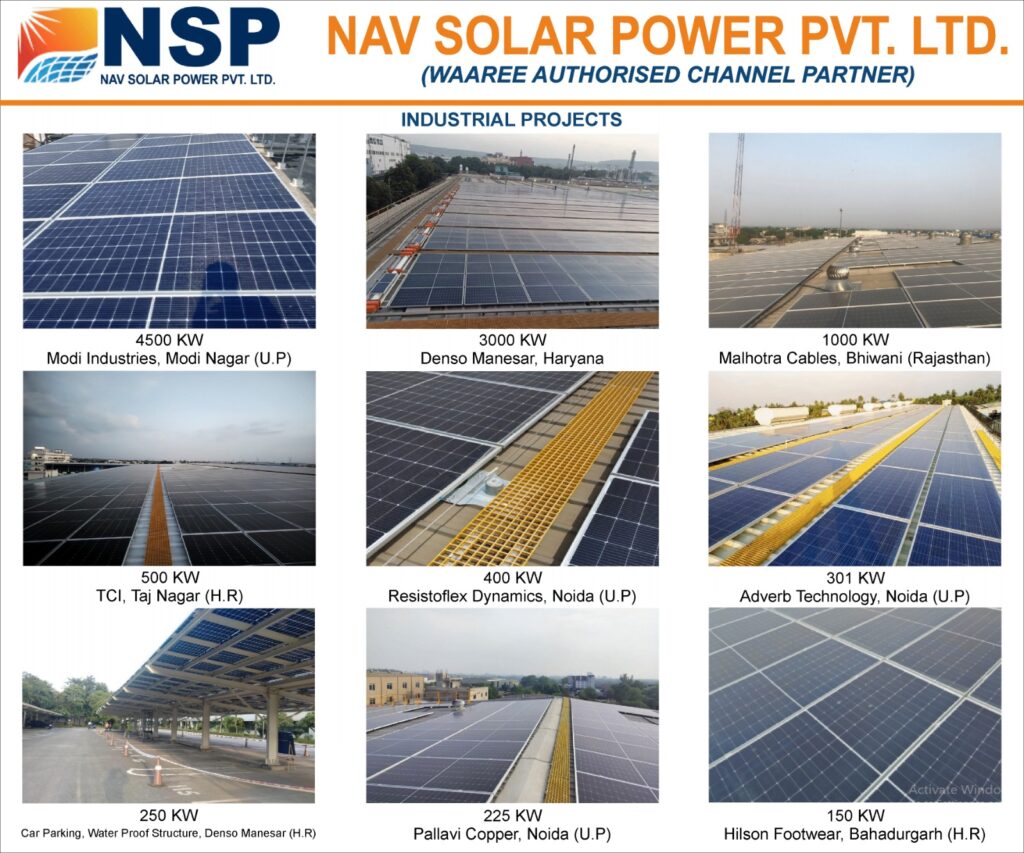Solar Panels For Factory
Solar energy can be a good option for factories in India because it can help reduce electricity bills, reduce carbon footprint, and provide energy independence.

1. Significant Cost Savings on Energy Bills
One of the most compelling reasons for factories to invest in solar power is the potential for substantial cost savings on energy bills. Factories typically consume large amounts of electricity for machinery, lighting. By installing a solar energy system, factories can generate their own electricity, significantly reducing their reliance on the grid.
- Offsetting Electricity Costs: Solar systems can provide free electricity during daylight hours, helping factories reduce their monthly energy expenditures.
- Lower Operational Costs: Once installed, solar panels require minimal maintenance and have no fuel costs, which means ongoing energy costs can be much lower than traditional grid power.
- Predictable Energy Costs: Solar power helps mitigate the risk of rising electricity prices. With solar, factories can lock in lower energy costs over the long term.
2. Return on Investment (ROI) and Long-Term Savings
Solar systems offer a strong return on investment (ROI). While there is an upfront cost to install the system, the energy savings over the system’s lifespan (typically 30 years) often far outweigh the initial investment.
- Quick Payback Period: Depending on the scale of the installation, factories may see a payback period of 2–3 years, after which they enjoy essentially free electricity for the remainder of the panel’s useful life.
- Energy Independence: Reducing dependency on external energy sources provides financial stability and can make factories more resilient to energy price fluctuations or supply interruptions.
3. Reduced Environmental Impact and Sustainability
Solar energy is a clean, renewable resource, which means factories can significantly reduce their environmental footprint by using it. By shifting from fossil fuels to solar power, factories can help mitigate climate change and contribute to global sustainability efforts.
- Lower Carbon Emissions: Solar power produces zero greenhouse gas emissions, reducing the factory’s carbon footprint. This is especially important as industries are under increasing pressure to meet carbon reduction goals and regulatory requirements.
- Sustainability Credentials: Adopting solar energy enhances a factory’s green credentials, making it easier to meet sustainability targets, secure eco-conscious partnerships, and market the factory as an environmentally responsible business.
4. Energy Independence and Reliability
Factories that depend on the grid are subject to fluctuations in energy availability, price volatility, and potential power outages. Solar power can provide greater energy independence and increase reliability.
- Stable Power Supply: Solar panels can ensure a steady supply of electricity, reducing reliance on grid power, and mitigating the impact of any potential grid disruptions or blackouts.
- Reduced Risk from Energy Price Fluctuations: By producing their own electricity, factories are less vulnerable to unpredictable energy price increases, especially in areas where electricity costs are volatile.
Contact for solar installation : +91-9205918380
If Interested click Call button or fill enquiry form:


